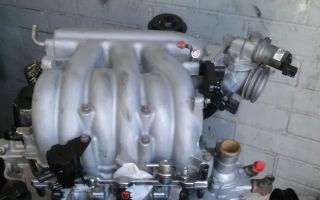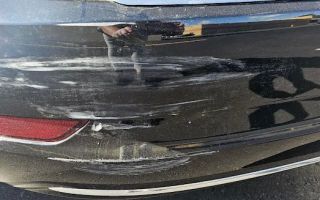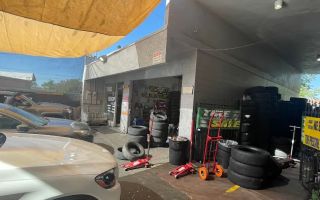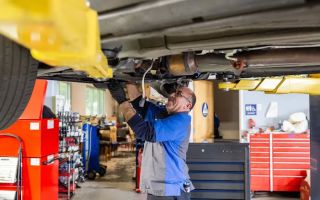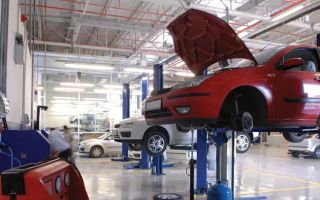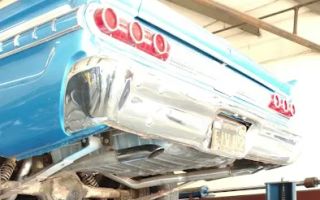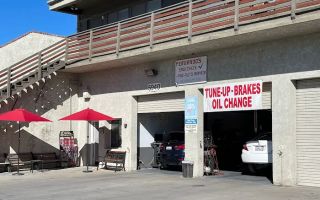What To Do When Your Car's Engine Starts Overheating
As a car owner, I've experienced the dreaded moment when the temperature gauge on my dashboard starts creeping into the red zone. It’s a feeling of panic that sets in immediately, followed by a million thoughts racing through my mind. What do I do? Is my engine about to blow? Can I fix it myself? These are all questions I’ve asked myself when I’ve faced an overheating engine. Let me walk you through how to handle this situation and what you can do to keep calm when things get heated under the hood.
pgsql复制编辑Understanding the Signs of Overheating
The first step in dealing with an overheating engine is recognizing the signs early on. If you catch it soon enough, you can prevent further damage and save yourself from a costly repair. The most obvious sign is the temperature gauge on your dashboard—if it’s in the red zone, it’s time to act. Another indicator could be steam or smoke coming from under the hood, or even a burning smell, which indicates that the engine is getting hotter than normal.

Pick Your Part - Help Yourself
1232 Blinn Ave, Wilmington, CA 90744, USA
What Happens When Your Engine Overheats?
When your engine overheats, it means that the temperature inside is rising beyond the safety limits, which can cause various issues. Your engine relies on the cooling system—mainly the coolant, radiator, and thermostat—to maintain an optimal temperature. If there’s a problem with this system, the engine can quickly heat up and cause serious damage.
Overheating can cause the following problems:
- Warped or Cracked Cylinder Heads: Extreme heat can warp or crack engine components, especially the cylinder heads.
- Blown Head Gasket: The heat can cause the head gasket to blow, leading to coolant leaking into the engine or oil mixing with coolant.
- Complete Engine Failure: In the worst-case scenario, the engine could seize up, leaving you with a hefty repair bill or the need for an entirely new engine.
Step-by-Step Guide: What to Do When Your Engine Overheats
1. Turn Off the Air Conditioning and Turn On the Heater
The first thing I do when my engine starts to overheat is to turn off the air conditioning. As tempting as it may be to keep cool, the AC can actually put additional strain on the engine. Then, I turn on the heater full blast. I know it sounds counterintuitive, but running the heater helps draw heat away from the engine and can lower the temperature slightly.

Pick Your Part - Greer
13054 E Wade Hampton Blvd, Greer, SC 29651, USA
2. Pull Over and Turn Off the Engine
If the temperature gauge continues to climb or if you see steam coming from the engine, I immediately pull over to a safe spot and turn off the engine. This is crucial. Continuing to drive while the engine is overheating can cause irreversible damage to critical components. I always make sure to stop as soon as it’s safe to do so.
3. Let the Engine Cool Down
Once I’ve safely pulled over, I open the hood and let the engine cool down. It’s important not to open the radiator cap or coolant reservoir right away, as the engine and cooling system may still be under pressure. Wait at least 15–30 minutes for everything to cool down before attempting to open anything. During this time, I try to remain patient, as it’s better to wait than risk injury from hot coolant or steam.
4. Check the Coolant Level
After the engine has cooled, I carefully check the coolant levels. If the coolant is low, this could be the reason for the overheating. I use a funnel and add the proper coolant to the system if necessary. If I’m in a bind, I’ve used plain water as a temporary fix, but I make sure to get the correct coolant for my car as soon as possible.
5. Inspect for Leaks or Obstructions
While the engine is cooling, I take a look around the radiator and cooling system for any visible leaks or blockages. If the coolant is leaking or if there’s debris blocking the airflow to the radiator, that could be the reason for the overheating. If I notice something obvious, like a broken hose or a major leak, it’s a sign that I need professional help to get the issue fixed.
6. Restart the Engine and Monitor the Temperature
Once I’ve checked the coolant and the engine is cool, I restart the engine and carefully monitor the temperature gauge. If it starts to rise again quickly, I know the issue hasn’t been resolved, and I need to stop and call for assistance. In many cases, though, adding coolant and letting the engine cool down will temporarily solve the problem, allowing me to drive safely to a nearby mechanic or service center.
What Causes Car Engines to Overheat?
In my experience, car engines overheat for a variety of reasons. Some of the most common causes include:
1. Low Coolant Levels
Coolant plays a critical role in regulating engine temperature. If the coolant level is low, the engine can overheat quickly. This is often due to leaks in the radiator, hoses, or the engine block. Regularly checking the coolant level can help prevent this issue.
2. Broken Thermostat
The thermostat controls the flow of coolant through the engine. If it’s stuck closed, it can prevent coolant from circulating properly, leading to overheating. I’ve found that this is one of the most common causes of engine overheating, especially in older cars.
3. Radiator Problems
If the radiator is clogged or malfunctioning, it won’t be able to cool the engine effectively. This can lead to the engine temperature rising uncontrollably. I make sure to clean my radiator periodically to prevent debris buildup.
4. Broken Water Pump
The water pump is responsible for circulating coolant throughout the engine. If the pump fails, coolant won’t flow properly, causing the engine to overheat. A failing pump is often accompanied by loud noises or leaking coolant, and it’s something that should be addressed immediately to prevent further damage.
How to Prevent Overheating in the Future
After experiencing an overheating engine, I became much more vigilant about maintaining my car’s cooling system. Some preventative measures include:
- Regularly checking the coolant level and topping it off when necessary.
- Replacing old coolant with fresh coolant according to the manufacturer’s recommendation.
- Inspecting the radiator and hoses for any signs of wear or leaks.
- Getting your thermostat and water pump checked during regular vehicle maintenance.
When to Call for Professional Help
If you’ve tried all the above steps and your engine continues to overheat, it may be time to call in the professionals. A towing service can help you get your car to a mechanic who can diagnose and repair the issue. In such cases, I always trust reliable companies like Rescue & Towing for fast and efficient service.


